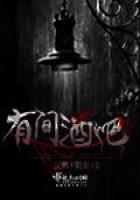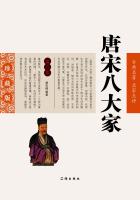Secreta Monita; Steinmetz's History of the Jesuits; Ranke's History of the Popes; Spiritual Exercises; Encyclopaedia Britannica;Biographie Universelle; Fall of the Jesuits, by St. Priest; Lives of Ignatius Loyola, Aquiviva, Lainez, Salmeron, Borgia, Xavier, Bobadilla; Pascal's Provincial Letters; Bonhours' Cretineau;Lingard's History of England; Tierney; Lettres Aedificantes; Jesuit Missions; Memoires Secretes du Cardinal Dubois; Tanner's Societas Jesu; Dodd's Church History.
JOHN CALVIN.
A. D. 1509-1564.
PROTESTANT THEOLOGY.
John Calvin was pre-eminently the theologian of the Reformation, and stamped his genius on the thinking of his age,--equally an authority with the Swiss, the Dutch, the Huguenots, and the Puritans. His vast influence extends to our own times. His fame as a benefactor of mind is immortal, although it cannot be said that he is as much admired and extolled now as he was fifty years ago. Nor was he ever a favorite with the English Church. He has been even grossly misrepresented by theological opponents; but no critic or historian has ever questioned his genius, his learning, or his piety. No one denies that he has exerted a great influence on Protestant countries. As a theologian he ranks with Saint Augustine and Thomas Aquinas,--maintaining essentially the same views as those held by these great lights, and being distinguished for the same logical power; reigning like them as an intellectual dictator in the schools, but not so interesting as they were as men. And he was more than a theologian; he was a reformer and legislator, laying down rules of government, organizing church discipline, and carrying on reforms in the worship of God,--second only to Luther. His labors were prodigious as theologian, commentator, and ecclesiastical legislator; and we are surprised that a man with so feeble a body could have done so much work.
Calvin was born in Picardy in 1509,--the year that Henry VIII.
ascended the British throne, and the year that Luther began to preach at Wittenberg. He was not a peasant's son, like Luther, but belonged to what the world calls a good family. Intellectually he was precocious, and received an excellent education at a college in Paris, being destined for the law by his father, who sent him to the University of Orleans and then to Bourges, where he studied under eminent jurists, and made the acquaintance of many distinguished men. His conversion took place about the year 1529, when he was twenty; and this gave a new direction to his studies and his life. He was a pale-faced young man, with sparkling eyes, sedate and earnest beyond his years. He was twenty-three when he published the books of Seneca on Clemency, with learned commentaries. At the age of twenty-three he was in communion with the reformers of Germany, and was acknowledged to be, even at that early age, the head of the reform party in France. In 1533 he went to Paris, then as always the centre of the national life, where the new ideas were creating great commotion in scholarly and ecclesiastical circles, and even in the court itself. Giving offence to the doctors of the Sorbonne for his evangelical views as to Justification, he was obliged to seek refuge with the Queen of Navarre, whose castle at Pau was the resort of persecuted reformers. After leading rather a fugitive life in different parts of France, he retreated to Switzerland, and at twenty-six published his celebrated "Institutes," which he dedicated to Francis I., hoping to convert him to the Protestant faith. After a short residence in Italy, at the court of the Duchess of Ferrara, he took up his abode at Geneva, and his great career began.
Geneva, a city of the Allobroges in the time of Caesar, possessed at this time about twenty thousand inhabitants, and was a free state, having a constitution somewhat like that of Florence when it was under the control of Savonarola. It had rebelled against the Duke of Savoy, who seems to have been in the fifteenth century its patron ruler. The government of this little Savoyard state became substantially like that which existed among the Swiss cantons. The supreme power resided in the council of Two Hundred, which alone had the power to make or abolish laws. There was a lesser council of Sixty, for diplomatic objects only.
The first person who preached the reformed doctrines in Geneva was the missionary Farel, a French nobleman, spiritual, romantic, and zealous. He had great success, although he encountered much opposition and wrath. But the reformed doctrines were already established in Zurich, Berne, and Basle, chiefly through the preaching of Ulrich Zwingli, and OEcolampadius. The apostolic Farel welcomed with great cordiality the arrival of Calvin, then already known as an extraordinary man, though only twenty-eight years of age. He came to Geneva poor, and remained poor all his life. All his property at his death amounted to only two hundred dollars. As a minister in one of the churches, he soon began to exert a marvellous influence. He must have been eloquent, for he was received with enthusiasm. This was in 1536. But he soon met with obstacles. He was worried by the Anabaptists; and even his orthodoxy was impeached by one Coroli, who made much mischief, so that Calvin was obliged to publish his Genevan Catechi** in Latin.















